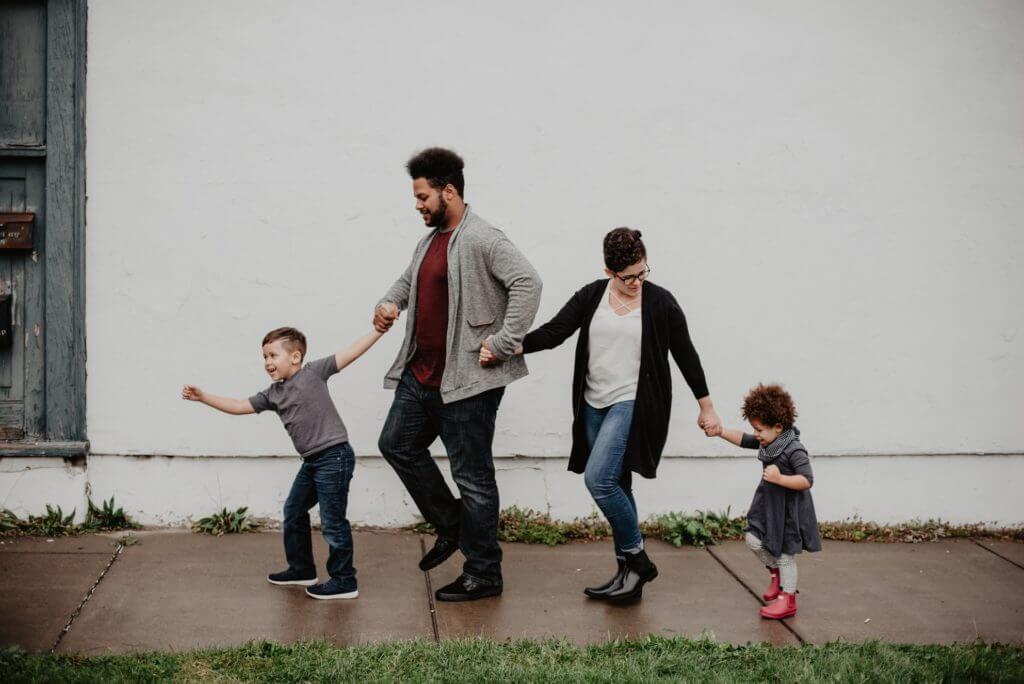Is moving traumatic for everyone? Packing up your life, hauling boxes, and bidding farewell to your favorite cozy corner can feel like a whirlwind of emotions. But fear not! In this blog post, we’ll unravel the mysteries of this adventure, sprinkle it with a touch of wit, and arm you with strategies to conquer the emotional toll that comes with relocating. So, grab a cuppa, and let’s dive into the swirling depths of this conundrum.


Moving can indeed be a traumatic experience for many. It involves uprooting oneself from familiar surroundings, leaving behind cherished memories, and stepping into the unknown. The process of packing, organizing, and bidding farewell to a place that holds sentimental value can evoke a range of emotions, such as sadness, anxiety, and even a sense of loss. However, while it may be challenging, it can also be an opportunity for growth, self-discovery, and exciting new beginnings.
Relocating is like embarking on a wild adventure where you must conquer the uncharted territory of adjusting to a new town. It’s a mix of excitement and trepidation, sprinkled with the occasional relocation mistakes that make you wonder if you’ve stumbled into a comedy show.
From losing your favorite socks in a sea of boxes to accidentally unpacking your cat instead of the TV remote, relocating sure knows how to keep life interesting. Fear of relocation scams can add to the stress as well.
But fear not, with a dash of humor, a dollop of resilience, and a trusty moving checklist, you can turn this potentially traumatic experience into a grand escapade filled with unforgettable tales and the joy of discovering your new home sweet home. So, buckle up and get ready to conquer the unknown, one quirky mishap at a time!
Is relocating a traumatic endeavor for adults? Well, it’s like joining a secret society of courageous adventurers who embrace change with a mixture of trepidation and excitement. Picture yourself navigating a labyrinth of moving boxes while simultaneously discovering the hidden benefits of relocation.
Sure, there may be moments of panic when you can’t find your go-to coffee mug or struggle to adjust to a new grocery store layout. But embrace the thrilling chaos, for beyond the whirlwind of organizing your new abode lies the chance to reinvent yourself, forge new connections, and conquer the uncharted territories of your future. So, suit up in your bravery armor, grab that packing tape sword, and charge forward.
It can be truly challenging! According to Reuters, kids who move more than three times are more likely to develop a mental health problem. However, embarking on a relocation with kids is like stepping into a whimsical realm where surprises abound.
It’s important to guide your little explorers through the labyrinth of change, from settling into a new abode with colorful walls and secret hiding spots to adapting to unfamiliar playgrounds – it’s a journey filled with discovery and growth.
And let’s not forget the thrill of relocating with a newborn, where each milestone becomes a precious memory to treasure. While there may be moments of uncertainty and the occasional meltdown over misplaced toys, fear not, intrepid parents! Embrace the opportunity to create a nurturing space where imaginations soar, new friendships blossom, and your little ones learn the art of resilience.

It’s no surprise that relocation stress is a common phenomenon, as bidding farewell to a familiar environment can trigger a range of emotions. These may include sadness, anxiety, and even a sense of loss. Factors such as the distance of the move, the support system available, and the timing of a last-minute relocation can all contribute to the intensity of these emotions.
According to a Verywell Mind article, studies have shown that the emotional toll of relocating can be comparable to other major life events, like divorce or the loss of a loved one. By recognizing these common emotions and acknowledging the challenges they pose, individuals can proactively address their emotional well-being.
If you find yourself crumbling under the stress of the entire process, watch the video below for some stress management tips:
As you plan a move, it’s crucial to recognize that emotions will inevitably come into play. Understanding this reality can help you approach the process with empathy, patience, and self-care. By acknowledging the emotional aspect, you can better equip yourself to navigate the highs and lows, making the transition smoother and more manageable.
From the excitement of starting anew to the sadness of leaving behind familiar surroundings, it’s normal to experience a range of feelings. Give yourself permission to feel and process these emotions. Journaling, talking with loved ones, or seeking support from online communities can be helpful outlets for expressing and understanding your feelings.
Moving away from friends and familiar support systems can be daunting. However, building a new support network in your destination is crucial for a smoother transition. Reach out to friends and family members who may have connections or acquaintances in your new area.
Use social media or online platforms to connect with local communities, neighborhood groups, or interest-based clubs. Cultivating new friendships can help alleviate feelings of loneliness and provide a sense of belonging in your new environment.
If you find that the emotional impact of the move is significantly affecting your well-being, consider seeking professional help. Therapists or counselors can offer guidance and support, helping you navigate the emotional challenges and provide strategies for coping with the stress of the transition.

Managing the emotional rollercoaster of relocation requires the implementation of effective coping strategies throughout the journey. From relocation day preparation to maintaining a relocation binder, incorporating practical techniques can help alleviate stress and promote a smoother transition.
Careful planning and organization are key. Create a comprehensive relocation checklist, outline tasks, and set realistic deadlines. Organize the move by decluttering, doing a move-out cleaning and packing efficiently, and ensuring items are properly labeled for easy unpacking. By breaking down the process into manageable steps, you can reduce overwhelm and maintain a sense of control.
Check out the video below if you have difficulties finding the motivation to kickstart preparation tasks:
When faced with a long-distance move, consider hiring cross-country movers and investing in long-distance moving services. These professionals bring expertise in navigating the complexities of relocating across vast distances. They offer services such as storage and packing services, ensuring your belongings are safely and securely transported.
To ensure you are dealing with a legitimate cross-country moving company, always check the BBB website for more details about their activities. By enlisting their help, you can alleviate physical strain and focus on managing the emotional aspects of the relocation.
Amidst the hustle and bustle, it’s crucial to prioritize self-care and take regular breaks. Focus on activities that bring you relaxation, practice mindfulness, walk a lot, or indulge in a favorite hobby. Take time to recharge and refuel both physically and emotionally. Additionally, ensure you relocate safely by using proper lifting techniques and taking necessary precautions to prevent injuries.
Share your thoughts, concerns, and excitement about the upcoming relocation. Engage in meaningful conversations, seek support, and lean on your support network during this transition. Prioritize quality time with loved ones, creating lasting memories and ensuring a sense of closure. By nurturing open and honest communication, you can navigate the emotional challenges and build stronger connections in the process.

When facing anxiety about relocating, it’s essential to discover effective strategies for managing stress and promoting a sense of calm. By implementing relaxation techniques, engaging in physical exercise, and exploring stress-reducing activities, you overcome all challenges with greater ease.
One way to manage anxiety during this process is to incorporate relaxation techniques into your daily routine. Take a moment to practice deep breathing exercises, inhaling serenity and exhaling worries.
Explore mindfulness practices, focusing on the present moment and letting go of future uncertainties. Websites like WebMD site offer helpful resources and guided relaxation exercises to support you on your anxiety-relief journey.

Exercise not only helps release tension but also boosts your mood. Get creative with physical activities that make you smile, like dancing through the chaos of packing or doing a “box-lifting” workout routine.
Embrace the witty side of the movement, turning everyday tasks into mini fitness challenges. Whether it’s lifting boxes with superhero-like strength or making lunges down the hallway, find joy in the physicality of the relocation process.
To alleviate stress and avoid depression after moving, incorporate stress-reducing activities into your daily routine. Explore the art of meditation, finding solace in quiet moments of self-reflection. Embrace the power of journaling, allowing your thoughts and emotions to flow onto the pages, providing a sense of release and clarity.

Don’t underestimate the importance of cultivating the positive aspects that come with any change. By focusing on a positive mindset and the excitement and potential of your new environment, you can embark on this journey with optimism and open yourself up to new opportunities.
How can you exactly have this positive mindset? Here are some tips to keep in mind:
Embrace the opportunity to make new friends in a new state, immersing yourself in the vibrant tapestry of a different community. Discover local attractions, parks, and hidden gems that await your exploration.
Embrace the diversity of cultures, cuisines, and experiences that your new location has to offer. By doing this, you can create a fulfilling and enriching experience during this transitional period.

Start building a supportive network that can make the transition smoother and make moving easier. By seeking out local community resources and groups and engaging in social activities, you can meet new people, make connections, and create a sense of belonging in your new environment.
To build a supportive network, start by seeking out local community resources and groups. Research online platforms, community centers, and social media groups that cater to the interests and hobbies you enjoy. Additionally, consider finding a job in your new location, as it can provide an opportunity to meet like-minded individuals and establish connections within the local community.
Attend local events, join clubs or classes related to your interests, and participate in community gatherings. Embrace the excitement of unpacking in your new home by inviting new friends to join you, creating a fun and interactive atmosphere. Actively seek social opportunities and open doors to building friendships and creating a supportive network.
Remember, connecting with others who are also navigating the experience of starting anew can provide a shared understanding and camaraderie that makes the transition feel less daunting.

By implementing the coping strategies discussed, acknowledging and validating your emotions, building a support system, and seeking professional help if needed, you can navigate the emotional toll of relocating with resilience and grace. Remember to prepare for the journey, embrace the positive aspects of change, and take care of your well-being throughout the process.
If you’re looking for reliable and professional long-distance movers, look no further than Trico Long-Distance Movers. Avoid the risks of falling into relocation scams by contacting us directly rather than aimlessly googling “long-distance movers near me.” Let our long-distance moving company assist you in making your move a smooth and stress-free experience. Reach out to us today to embark on your moving journey with confidence.
A transition to another location can be considered traumatic due to the disruption of familiar routines, leaving behind a familiar environment, and the stress associated with the logistics of the move.
Common emotional reactions during a move include feelings of stress, anxiety, sadness, nostalgia, excitement, and uncertainty.
To prepare yourself emotionally for the entire process, take time to acknowledge and validate your emotions, create a support system, and engage in self-care activities that promote emotional well-being.
Strategies to cope with the emotional toll of relocating include practicing relaxation techniques, maintaining open communication with loved ones, seeking professional help if needed, and focusing on the positive aspects and opportunities that come with the change.
Managing anxiety and stress during the relocation process can be done through activities like deep breathing, mindfulness, engaging in physical exercise, and seeking support from loved ones or professionals.
Embracing the positive aspects involves cultivating a positive mindset, exploring the new environment, seeking new experiences, and connecting with the local community to make new friends.
Building a supportive network in your new location can be achieved by seeking out local community resources, joining groups or clubs related to your interests, attending social activities, and reaching out to new acquaintances to foster connections.
It is normal to feel a sense of loss or nostalgia during a move as you leave behind familiar people, places, and memories. It’s important to acknowledge these emotions and give yourself time to process them.
Consider seeking professional support for the emotional challenges of relocating if you find that your emotions are significantly impacting your daily life, relationships, or overall well-being.
The best thing to do is to maintain open communication, involve them in the moving process, create a sense of familiarity in the new environment, and offer support and understanding during this transition.Is moving traumatic? Discover the impact of relocating and find tips to navigate the challenges. Explore the journey of dealing with the emotional toll!